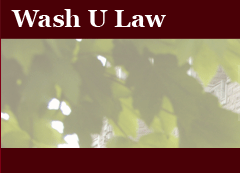Legal Educators Defending the Status Quo
Publication Title
Washington University Journal of Law & Policy
Abstract
These are trying times for legal educators. In 2011, the New York Times ran a year-long series of embarrassing articles exposing problems within legal academia. It revealed that law schools charge extremely high tuition and produce an oversupply of graduates, many of whom end up with large debt loads and no jobs. To entice students to enroll, many law schools advertise misleading employment data—claiming 90 percent or more of graduates obtain employment when the underlying truth is much worse—and lure students with scholarship offers that carry a significant risk of forfeiture, which unwary students fail to fully appreciate. Adding credence to the criticisms, two law schools, Villanova and Illinois, revealed that they had supplied falsely inflated LSAT/GPA scores to the ABA for multiple years.
The initial reaction of leading legal educators was to downplay the seriousness of the problems. Legal educators criticized the Times series as tendentious and ill-informed. The Chair of the ABA Section on Legal Education and Admissions to the Bar, Dean John O’Brien, asserted that “the number of institutions that fail to report employment data accurately is small,” and “[l]egal education itself has never been in better shape in terms of the preparation that we provide future lawyers.” Responding to information that many heavily indebted law graduates are not landing jobs as lawyers, the President of the Association of American Law Schools (AALS), Michael Olivas, asserted that this is not an appropriate gauge of success: “I do not believe that working in a law firm or going to court is the sole measure of lawyers or the only appropriate metric for job placement. . . . people who graduate from law school can do many things, and do them better than can non-law-trained employees.”
After this initial period of denial, legal educators increasingly began to acknowledge that reforms lie ahead for legal academia. The motivation for this shift was partly a newfound awareness of poor job results suffered by recent law graduates. But what really got the attention of legal educators was two consecutive years of substantial declines in the number of applicants. This has put severe stress on the financial resources and standing of many law schools. Legal academics are now feeling the squeeze and worrying about the future.
The motivation for reform matters. A person worried about the economics of legal education from the standpoint of students and society will come up with a different set of reforms than a person worried about the survival of law schools and the working conditions of legal educators. The critics of legal education believe dramatic changes to every aspect of our operation are necessary, whereas defenders are fighting to preserve as much of the status quo as possible. The critics claim that the current system is a disaster—the defenders counter that significant reform to legal education will bring disaster.
Recommended Citation
Brian Z. Tamanaha,
Legal Educators Defending the Status Quo,
41
Wash. U. J. L. & Pol’y
131
(2013),
https://openscholarship.wustl.edu/law_journal_law_policy/vol41/iss1/7
